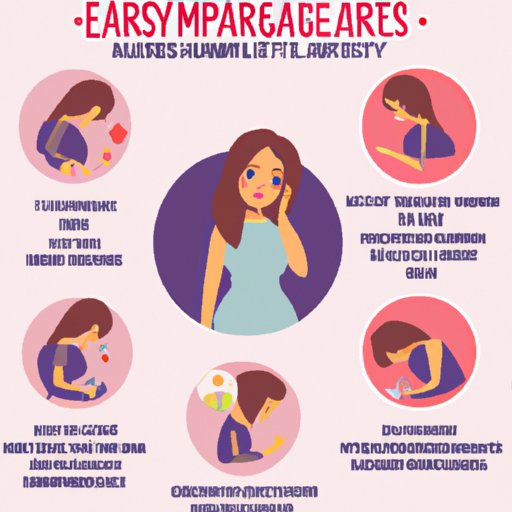
Introduction to Early Miscarriage
Early miscarriage is a type of pregnancy loss that occurs before 20 weeks of gestation. It is a common experience that affects around 10-20% of all pregnancies, and often goes unnoticed by women who may mistake it for a late or heavy period. Although early pregnancy loss is a sensitive and personal subject, it is important to talk about it openly and honestly in order to dispel myths, provide support, and promote awareness.
Understanding Early Miscarriage: When is it Most Common?
Early miscarriage is defined as the loss of a pregnancy before the 20th week of gestation. It can happen at any time during the first trimester, and is most common during the first 12 weeks of pregnancy. After 12 weeks, the risk of miscarriage decreases significantly. The risk of miscarriage is higher in older women, women with pre-existing health conditions, and those who have had previous miscarriages.
Early Pregnancy Loss: Causes, Symptoms, and Risks
There are many different causes of early pregnancy loss, including chromosomal abnormalities, infections, hormonal issues, reproductive abnormalities, and lifestyle factors such as smoking and alcohol consumption. Symptoms of early pregnancy loss can vary, but may include vaginal bleeding, cramps, and the passing of tissue or clots. Risks for early pregnancy loss include maternal age, history of miscarriage, certain underlying medical conditions, and lifestyle factors such as smoking, heavy alcohol use, and drug abuse.
The Emotional Toll of Miscarriage: Coping with Early Loss
Early pregnancy loss can be emotionally devastating for women and their partners, causing feelings of grief, sadness, depression, anxiety, guilt, and shame. Coping mechanisms and strategies can include seeking professional help, joining support groups, practicing self-care, and allowing oneself time to grieve and heal. Resources for women experiencing early pregnancy loss include counseling services, support groups, online communities, and books.
Preventing Miscarriage: Habits and Steps to Take in Early Pregnancy
While there are no guaranteed ways to prevent early pregnancy loss, there are steps that women can take to increase their chances of a healthy pregnancy. Early prenatal care and monitoring, including regular visits with a healthcare provider, can help identify and treat any potential health issues early on. Maintaining a healthy lifestyle that includes a balanced diet, regular exercise, and avoiding alcohol and tobacco can also help reduce the risk of miscarriage. Women with a history of miscarriage may be advised to take progesterone supplements or undergo additional testing or treatments.
Miscarriage Misconceptions: Debunking Myths Surrounding Early Pregnancy Loss
There are many myths and misconceptions surrounding early pregnancy loss, including the idea that it is caused by stress or exercise, or that it is always the woman’s fault. In reality, early pregnancy loss is usually caused by genetic or anatomical issues, infections, or other medical conditions that are beyond a woman’s control. Understanding the facts and dispelling myths is crucial for women experiencing early pregnancy loss, as it can help them move through the grieving process and seek appropriate treatment and support.
Conclusion
Early pregnancy loss is a common experience that affects many women and their partners. By understanding the causes, symptoms, risks, and misconceptions surrounding early miscarriage, women can be better equipped to cope with loss, take steps to promote a healthy pregnancy, and seek appropriate support and information when needed. It is essential to remember that early pregnancy loss is not a woman’s fault, and that there is no right or wrong way to experience or cope with it. Seeking help and support can make all the difference in the healing process.





